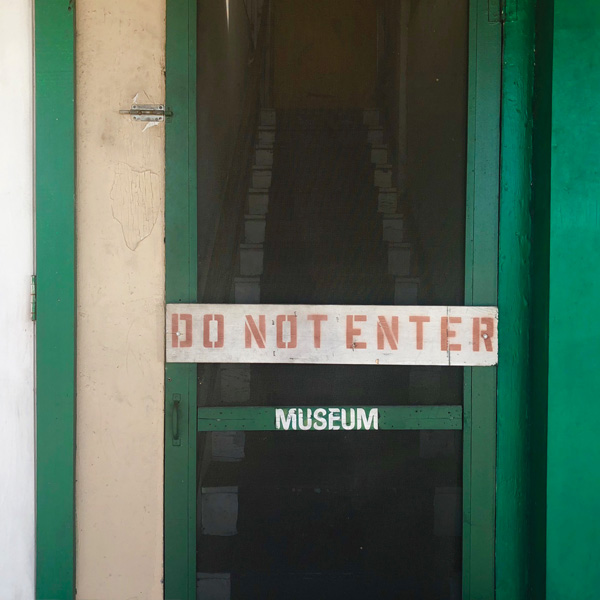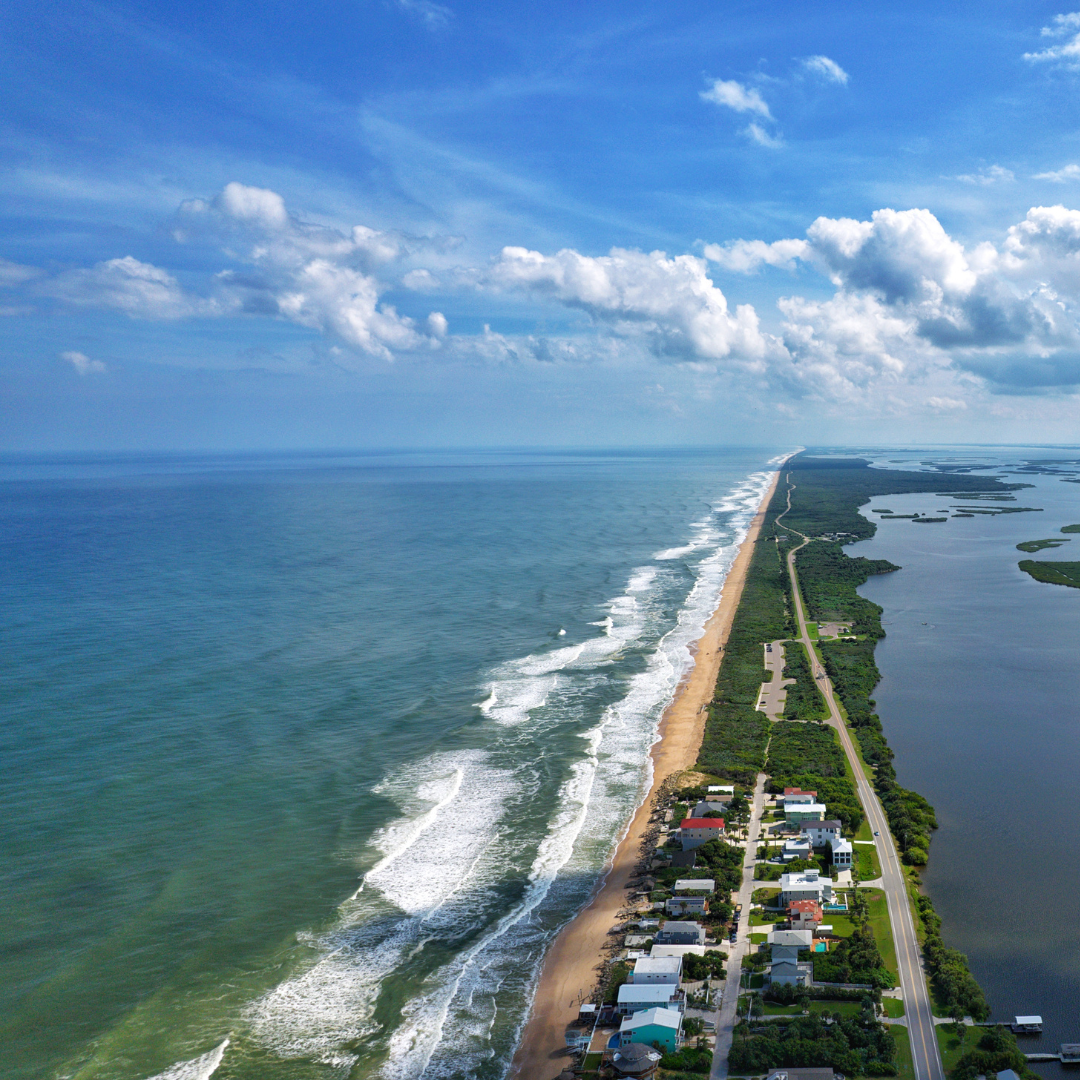Ode to Yeehaw Junction
The downfall of Florida’s most beloved brothel (and its burgers)


The Desert Inn Motel, located in Yeehaw Junction off State Road 60
Editor’s Note: The Desert Inn Motel was hit by a tractor-trailer in December 2019. The Osceola County Historical Society is currently assessing the damages and reevaluating plans to restore it.
I am a sucker for historic markers. Behold, those weighty plaques at roadsides trivializing notable events from a hazy past. To wit, this gem from a crossroads south of Atlanta:
“On November 28, 1864, General William Tecumseh Sherman stopped here to water his horse, Sam, during his storied March to the Sea.”
Or this one from Chattanooga, Tenn.:
“On this site in 1916, Ernest Holmes mounted the world’s first wrecker mechanism on the body of a 1913 Cadillac to create the world’s first tow truck.”
I confess a weakness for this archival catnip, my nerdy curiosity being but one among many grievances my children specify with discontent. Mea culpa.
But there is one enticement that, until recently, eluded my obsession, though I have passed it at speed many times. (Blame this failure to investigate on pre-adolescent pleas that meeting the Mouse was infinitely more compelling than my curiosity, those little savages.) At Exit 193 on Florida’s Turnpike—and take a moment to savor the possessive apostrophe where any ordinary state would have appended the definite article “the” instead—stands a marker that would make even General Sherman and Mr. Holmes stand and salute.
I have at long last alighted at Yeehaw Junction, a “census-designated place” in Osceola County that boasted 250 residents in 2010 but that is surely less densely peopled today. A flat expanse extends miles in every direction. Insects probe my ears, nose and throat. Even in December, the sun exerts palpable weight.
Aside from a pair of modern truck stops, there is literally no there, there, at the intersection of U.S. Highway 441 and Florida State Road 60. It is a bare crossroads where one might either bargain with the devil for favors or pass through at all possible speed. My kids would have been sorely disgruntled had I dragged them to read this epistle, posted nearby:
“The Desert Inn was founded as a trading post in the late 1880s. The present building dates before 1925 and served as a supply and recreational center for cattle drovers, lumber men and tourists during the era when much of Osceola County was still undeveloped wilderness. Cowmen working the free ranging cattle on the palmetto prairie and lumber men cutting timber in the nearby pine lands came to the Desert Inn to eat, drink and dance at this “oasis” where they could enjoy some relief from their arduous labors. Local patrons of the trading post and restaurant included African Americans and Seminoles, who had separate dining facilities in the era of segregation. The construction of roads in the 1930s brought tourists to the area, and a set of overnight cabins were erected behind the original building. Today the Desert Inn continues to be a popular destination for tourists and local residents. It was listed in the National Register of Historic Places in 1994.”


In 1994, the old brothel was converted into a modest museum. Photography by Tom Hall
The “present building” is abandoned now. The Desert Inn closed in June 2018, its crumbling skeleton suffering the entropic embrace of harsh elements and an unholy alliance of aggressive Florida weeds that resemble oversized hands crushing old-school beer cans. To stand and contemplate this lost gemstone of Real Florida, wedged into the smallest pie slice of land at this sandy crossroads, is to abide vindictive whorls of tractor-trailer-generated haboobs and diesel-perfumed dustnados of sand, grit, tire bits, and snack food detritus.
Yet stand and ponder I must. Heck, the Desert Inn is on the National Register of Historic Places, one of several dozen brothels so recognized across this great nation. And let us note how the official plaque prissily elides this legacy, euphemizing what went on as recreation and dancing. Honey, please.
Yeehaw Junction, née Jackass Junction, was a beacon to thousands of working men through the years (and likely the bane of many working women). This one-time brothel and trading post, later a gas station, restaurant and honeypot for roving packs of thirsty motorcycle enthusiasts, has stories to tell.
The Desert Inn opened in the 1880s as a trading post, which later became a bar and brothel for cowboys, lumbermen, ranchers and farmers. As recreational centers go, it was a typically indelicate place. Cattlemen drove their herds to market through the crossroads and stopped for recreation. Eschewing the convenient bovine theme, this humble carrefour was dubbed Jackass Junction during the 1930s in honor of the burros that carried the clientele to their preferred, um, recreations. Around the same time, the state paved the roads in a spasm of modernization intended to encourage tourist transit. Alas, access to water and electrical service would not arrive until 1978.
In the late 1950s, the Florida State Turnpike Authority deemed the Jackass Junction name inappropriately coarse for the delicate tourists who would travel Florida’s (gleaming new) Turnpike. The Desert Inn’s website (desertinnrestaurant.com, still online as I write this) accuses the arbiters of moral probity at Standard Oil, eager to site a service station at the Junction, of demanding any moniker other than Jackass. Either way, I lament the change.
Here the tale reaches a fork in the road: One version of what led to the name change recounts strained negotiations between the authorities and locals aggrieved at the insult to their beloved census-designated place. The story goes that they insisted on “Yeehaw” because that is the sound a jackass makes. Another account suggests that the new name was derived from a Seminole word for “wolf.”
Whatever.
As I admit my bias, I question whether the rechristening was worth the trouble, public perception-wise. You say Yeehaw, I say Jackass. Let’s call the whole thing off. I hold as self-evident that if the original name had stuck, I would have visited in time to enjoy the Desert Inn in all its post-brothel glory. My fantasy of taking over one of the 11 rooms out back—“Clean rooms with showers $45. No reservations, no refunds”— while gawking at a parade of tourists, swilling cheap beer and gorging on the Inn’s storied burgers and fried green tomatoes, has been blown to the four corners in a cloud of road grit. I would trade a month at South Beach for that right about now. Dammit three times.
Even closed, the Desert Inn remains an attraction. While I was there, three cars and a 12-passenger van—from Quebec, no damned less—pulled up and disgorged a cluster of disappointed attractees exclaiming “Oh, man” and “No way!” All of us were Googling (yeah, this is the place, alright), laughing, scratching our heads and golly-goshing in touristic minor key harmony as yet another piece of fading Florida comes a cropper.
Fun fact: The Junction played an unwitting role in defending our way of life from the scourge of global communism. A 1968 experiment conducted under the United States Department of Defense Project 112, labeled DTC Test 69-75, had a U.S. Air Force F-4 Phantom fighter jet spray Puccinia graminis var. tritici (aka stem rust) on wheat fields around Yeehaw seven times to test a potential method of decimating the Soviet Union’s wheat crop, should the Cold War ever turn hot. Given that Project 112 was primarily focused on biological and chemical agents like anthrax, Staphylococcal enterotoxin and Francisella tularensis, as well as “controlled temporary incapacitation,” the Junction got off easy—if we can characterize potentially lethal secret poisoning by your own government as “easy.” Whatever impact stem rust might have had then, fifty years later the hypertrophic weeds pulling the Inn back to earth are unimpressed.
It ain’t paradise, and there is damn sure no need to put up a parking lot. But it is a pointed, fine reminder: You don’t know what you got til it’s gone.





